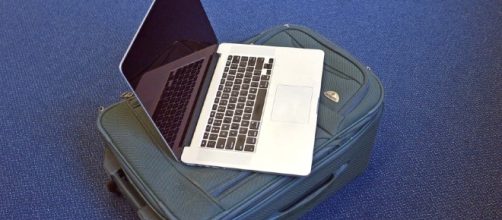The suicide bombing at a pop concert in Manchester has forced the United States Department of Homeland Security to consider widening the scope of the ban on laptops and other similar electronic gadgets in the cabins of commercial flights. Secretary John Kelly has revealed that the ban could be extended to cover not only all international flights that are headed to the United States but also to outward bound flights. He has explained that, as it is, there are threats against aviation in general and terrorists are believed to be obsessed with targeting an airplane in flight, especially one of American origin in which the majority of the passengers are from the US.
The scope of the existing ban
Daily Mail UK reports that a ban on laptops as cabin luggage was announced in March. That affected an average of 50 flights per day from 10 cities, with the majority of these cities being in the Middle East. The reason for introducing the ban was to take measures against any possible terrorist attacks because of fears that miniature bombs concealed in electronic devices like laptops could be used.
The result of the ban was that passengers could not bring any electronic devices like laptops and tablets into the cabin and electronic items larger than a smartphone had to be part of checked-in luggage. The ban has affected direct flights to the United States from at least 10 airlines that belong to Jordan, Egypt, Turkey, Saudi Arabia, Kuwait, and Qatar, among others.
At the time of the introduction of the ban, the Department of Homeland Security indicated that the situation would be reviewed at a later date and modified if considered necessary. The time has come and this is borne out of the fact that terrorists are still moving about freely and do not hesitate to carry out suicide bombing like the one in Manchester.
The effect of the ban
The airline industry has criticized the laptop ban of the United States and has said that such an action would cause a severe downturn in trans-Atlantic air travel and would become a very costly affair for travelers in terms of lost time. Travelers are used to working on their computers, especially on long distance flights, to maintain continuity of work.
That would grind to a halt with the implementation of the ban. The Department of Homeland Security appears to be unmoved because the Manchester Arena terrorist attack that left 22 concert-goers dead has put the focus back on terrorism.


